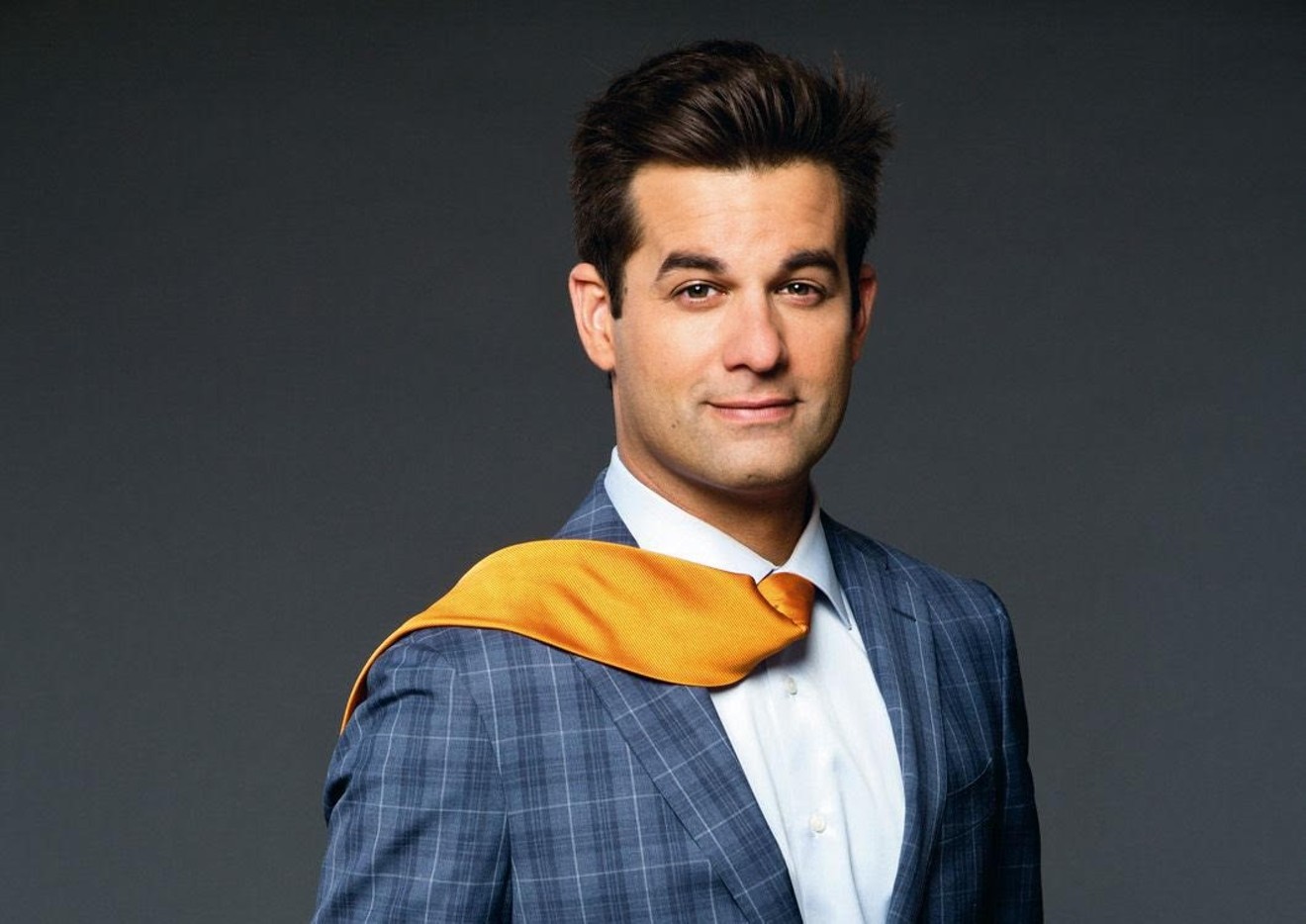Michael Kosta's career didn't start in a comedy club. It started on a tennis court.
For the first half of his career, Kosta was a tennis player who tore up the circuit as a championship player in the Big Ten and peaked at 864th in the world as a tennis pro.
"I played all the tournaments," Kosta says. "Dallas for me was Thanksgiving playing the [USTA] Boys 16 National Indoor Championships."
Career success and the financial support to compete required a steady stream of wins, and in between the long stretches of downtime between matches, Kosta would jot down jokes in a notebook. Eventually, he would use those notes on stage when he transitioned from tennis to comedy while working as an assistant tennis coach for the University of Michigan. Between shows, he once again found himself struggling, but just like in sports, every loss made him better.
Eventually, Kosta scored his own albums, such as Comedy for Attractive People, which he recorded at The Comedy Store; one-hour specials such as Detroit. NY. LA. for Paramount+; his own podcast, Tennis Anyone? and a correspondent spot on The Daily Show with Trevor Noah. He continues to tour as a headliner in between his correspondent appearances, including two shows at 8 and 10 p.m. Friday, Nov. 12 and Saturday, Nov. 13 at the Dallas Comedy Club in Deep Ellum.
"Looking back, I'm impressed with my resilience, and I guess that's because of the sport," Kosta says. "You have so many bad shows, you don't know what you're doing and you fail so much, but in a lot of ways because I think I was still close to tennis, I just approach it [like] losing a match. You wake up the next day and go practice."
Kosta's comedy career started at open mics and then as a road comic traveling in his grandfather's Buick LaSabre playing gigs where he opened for headliners. He performed at any place that would pay him. Kosta remembers doing what's known as a "Hell gig" at a bowling alley where he was bombing. The audience could also hear the people upstairs constantly bowling strikes, "so there was this dichotomy of me failing and them succeeding."
"You keep getting better," Kosta says. "I appreciate every single time I get to a comedy club and I'm headlining and someone pronounces my name correctly and there are people in those seats."
Kosta became a correspondent for Trevor Noah's Daily Show a little over a year after Noah took over Jon Stewart's host chair. He says he remembers the moment he got the call after several auditions.
"I was in a park in Manhattan crying on the phone because all you hear is no," Kosta says. "You just hear no to everything all the time and I realized it's a gratuitous profession. You get sick of hearing 'No' and when someone finally says 'Yes,' even though I tried hard to not value external gratification and acceptance as my main force, it is nice when someone says, 'Yes, we want you.'"
The Daily Show has taken him to places even crazier than a bowling alley that taunts bombing comedians. In California's Sonoma County, he's talked to "water witches" about the state's droughts. He's flown to Switzerland to talk about gun violence. He's traveled to New Jersey to talk to a woman who hangs profane anti-President Joe Biden flags in her front yard.
The field interviews are a mix of improvisation and prewritten material based on how producers and writers think the interview subject might react to basic and sardonic questions. Kosta says that much like the in-the-moment nature of comedy, the key is to remain attentive and reacting on the spot.
"We have a game plan, and you better be willing to throw it out and do something in the moment or it's not working," Kosta says, thinking back to one specific example. "As much as you prepare and we do this with the producers and the writers (...) the three things we think are the three things that this woman is going to say and then they say something totally more insane or she shows up wearing a pink Victoria's Secret nightgown top — and as many intelligent, award-winning writers as we have now, we never could've guessed that's what she'd show up in."
"You have to be in the moment," Kosta adds. "You have to listen. It's one of the hardest things, but ... you've got to listen because you don't listen, you're gonna miss it."
Kosta seems like he's at the top of his game, but he says he's learning how to hone his material and delivery whether it's on The Daily Show, a stage or behind the mic for his podcast. He still relishes every chance he gets to practice.
"That's why there's John Oliver," Kosta says. "That's why there's Samantha Bee. That's why there's Stephen Colbert. You just do everything and you're not always good at the time but you get good."
[
{
"name": "Air - MediumRectangle - Inline Content - Mobile Display Size",
"component": "18855504",
"insertPoint": "2",
"requiredCountToDisplay": "2"
},{
"name": "Editor Picks",
"component": "17105533",
"insertPoint": "4",
"requiredCountToDisplay": "1"
},{
"name": "Inline Links",
"component": "18349797",
"insertPoint": "8th",
"startingPoint": 8,
"requiredCountToDisplay": "7",
"maxInsertions": 25
},{
"name": "Air - MediumRectangle - Combo - Inline Content",
"component": "17105532",
"insertPoint": "8th",
"startingPoint": 8,
"requiredCountToDisplay": "7",
"maxInsertions": 25
},{
"name": "Inline Links",
"component": "18349797",
"insertPoint": "8th",
"startingPoint": 12,
"requiredCountToDisplay": "11",
"maxInsertions": 25
},{
"name": "Air - Leaderboard Tower - Combo - Inline Content",
"component": "17105535",
"insertPoint": "8th",
"startingPoint": 12,
"requiredCountToDisplay": "11",
"maxInsertions": 25
}
]












